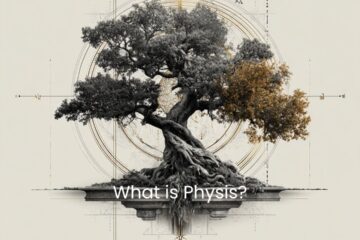Introduction

Taxis in Stoicism is the principle of order, structure, and proper arrangement within the cosmos and human life. The Stoic meaning of taxis highlights how everything in nature has its rightful place and function, and how our task is to align with this natural order. For modern readers, taxis offers a reminder that peace and resilience come from living in harmony with the structure of reality rather than resisting it.
Break Down the Word
- Greek: τάξις (taxis)
- Root: from the verb tassō (τάσσω), “to arrange” or “to order.”
- Literal meaning: order, arrangement, or organization.
- Philosophical meaning: the natural structure and order of the universe, including the role of reason in organizing human life.
Taxis matters in Stoic thinking because it grounds the belief that nothing is random—our lives are part of a rationally ordered whole.
Key Dimensions of Taxis
- Cosmic Order: Taxis reflects the rational arrangement of the universe, governed by Logos.
- Human Conduct: It emphasizes living with discipline and aligning one’s choices to natural order.
- Community Harmony: Taxis extends to social and civic life, ensuring balance within human relationships and duties.
Core Stoic Principles Connected to Taxis
- Reason (λόγος): Logos gives order to the universe, and taxis is its visible expression.
- Nature (φύσις): To live according to nature is to recognize and respect taxis.
- Virtue (ἀρετή): Acting virtuously means arranging desires and actions in line with order.
- Community (κοινωνία): Taxis structures not only individual life but also society, guiding justice and cooperation.
- Wisdom (σοφία): Wisdom is knowing how to recognize and live in accordance with taxis.
Taxis and Determinism: The Chain of Cause and Effect
For the Stoics, taxis is inseparable from determinism: the belief that all events unfold within a rational order of cause and effect. Chrysippus compared the cosmos to a rolling cylinder; once pushed, it follows a determined path, yet the way it rolls depends on its own shape. In the same way, events are determined by prior causes, but our rational faculty gives shape to how we respond.
Marcus Aurelius reflects on this when he writes:
“The world as a living being – one nature, one soul. Keep that in mind. And how everything feeds into that single experience, moves with a single motion.”
Marcus Aurelius, Meditations, Book 4.40
This worldview does not imply fatalism or passivity. Instead, it frees us to focus on what is truly ours: our judgments, choices, and attitudes. As Epictetus reminds us, while external events are determined, our freedom lies in how we assent to them.
Modern Misunderstandings
- Taxis is not about rigid control or micromanagement.
- It is not military-style discipline, though Stoics sometimes used the metaphor of an army.
- Instead, taxis is about harmony and natural order, not forced conformity.
Why It’s Central to Stoicism
Taxis explains why the Stoics sought to live in agreement with nature. The entire philosophy rests on the belief that order governs both the cosmos and the human soul. In this framework, virtue is best understood as aligning oneself with this universal order. Without taxis, Stoicism would lose its grounding in the idea of a rational and coherent cosmos.
Practical Applications of Taxis
- Morning reflection: Ask, “What is my place within the larger order today?”
- Journaling: Write about moments when disorder in your thoughts created turmoil, and how order restored calm.
- Practice restraint: Before reacting emotionally, pause and reframe. Does this align with nature’s order?
- Community exercise: Contribute to social order by practicing fairness in conversations and responsibilities.
For more guidance, explore Stoic coaching or our collection of Marcus Aurelius quotes on living in harmony with nature.
FAQ Section
What does taxis mean in Stoicism?
Taxis in Stoicism means the natural order or arrangement of things, both in the universe and in human life.
Is taxis the same as discipline?
Not exactly. Discipline is a practice within individuals, while taxis refers to the broader principle of universal and ethical order.
Can anyone develop taxis in their life?
Yes. Anyone can learn to align thoughts and actions with natural order through reflection, restraint, and attention to reason.
Conclusion
Taxis in Stoicism shows us that peace comes from recognizing and aligning with the natural order of life. Rather than fighting disorder or resisting fate, we find strength by accepting the chain of cause and effect and harmonizing our judgments with it. Practicing taxis daily brings balance to both thought and action.
Want to explore more Stoic practices?
Book a free consultation with one of our Stoic Coaches or learn about more Stoic philosophy terms. You can also listen to the Via Stoica podcast on Spotify or Apple Podcasts or watch it on YouTube.
Author Bio
Benny Voncken is the co-founder of Via Stoica, where he helps people apply Stoic philosophy to modern life. He is a Stoic coach, writer, and podcast host of The Via Stoica Podcast. With almost a decade of teaching experience and daily Stoic practice, Benny creates resources, workshops, and reflections that make ancient wisdom practical today.



0 Comments